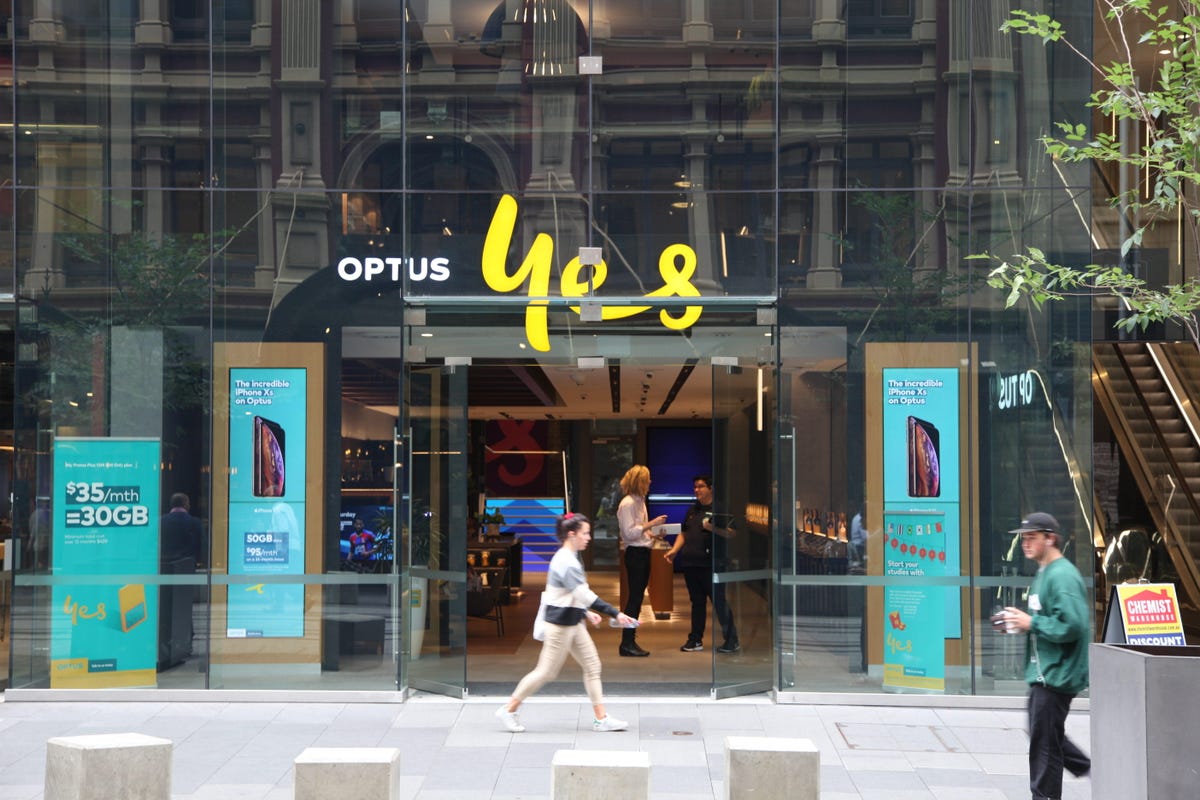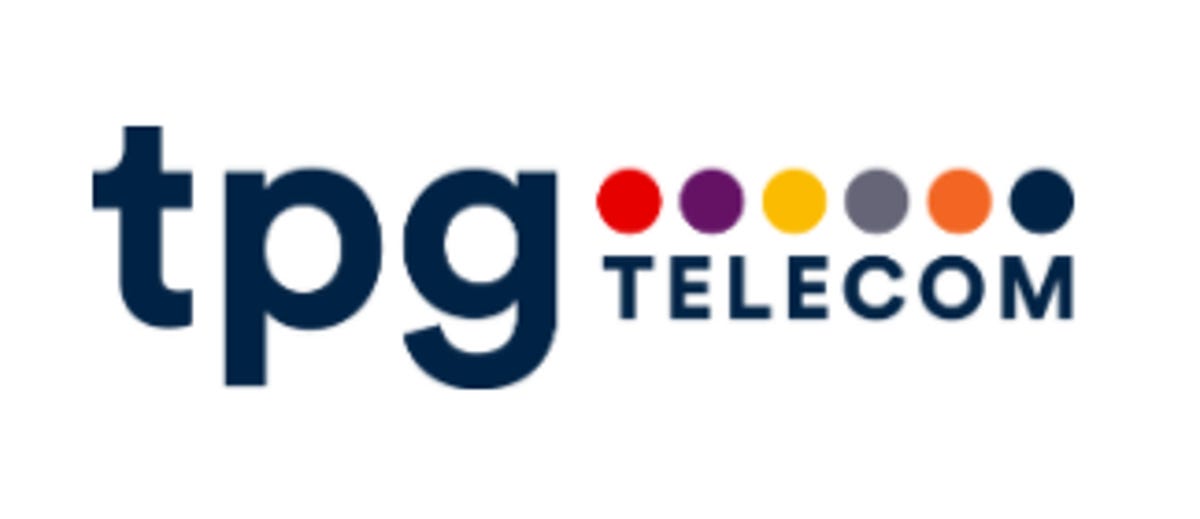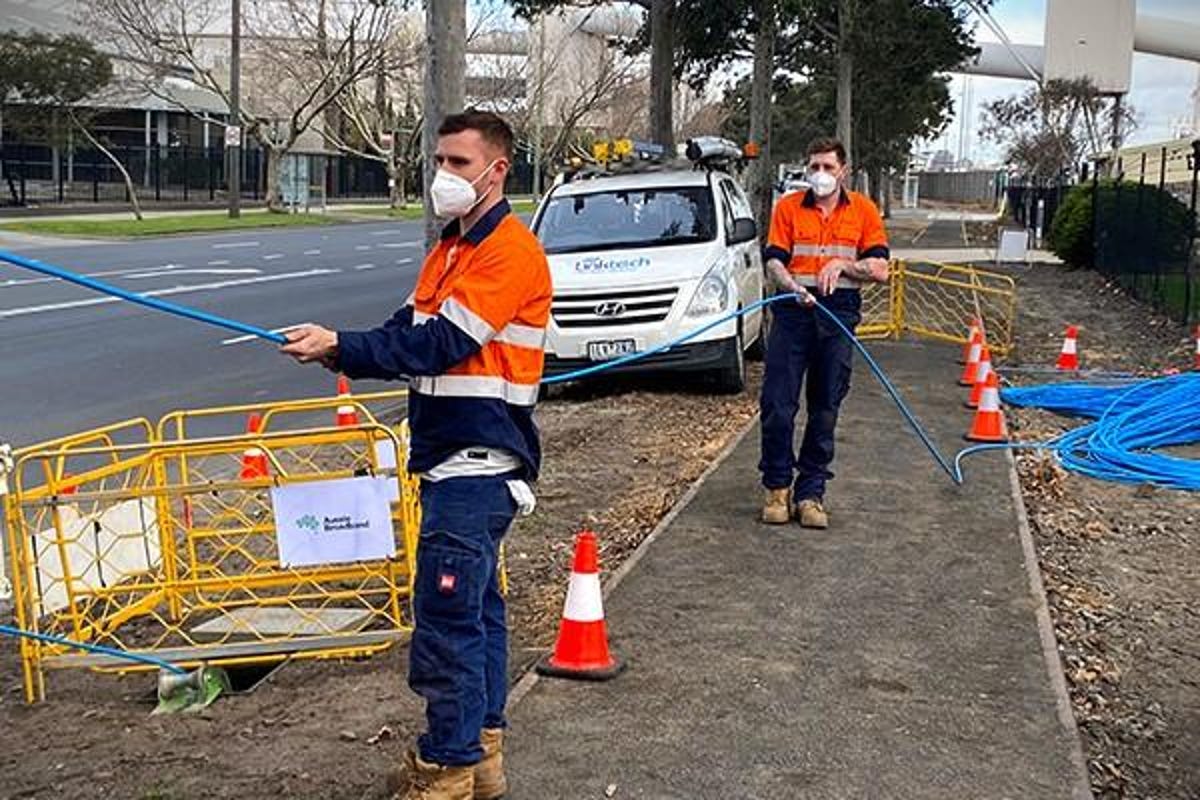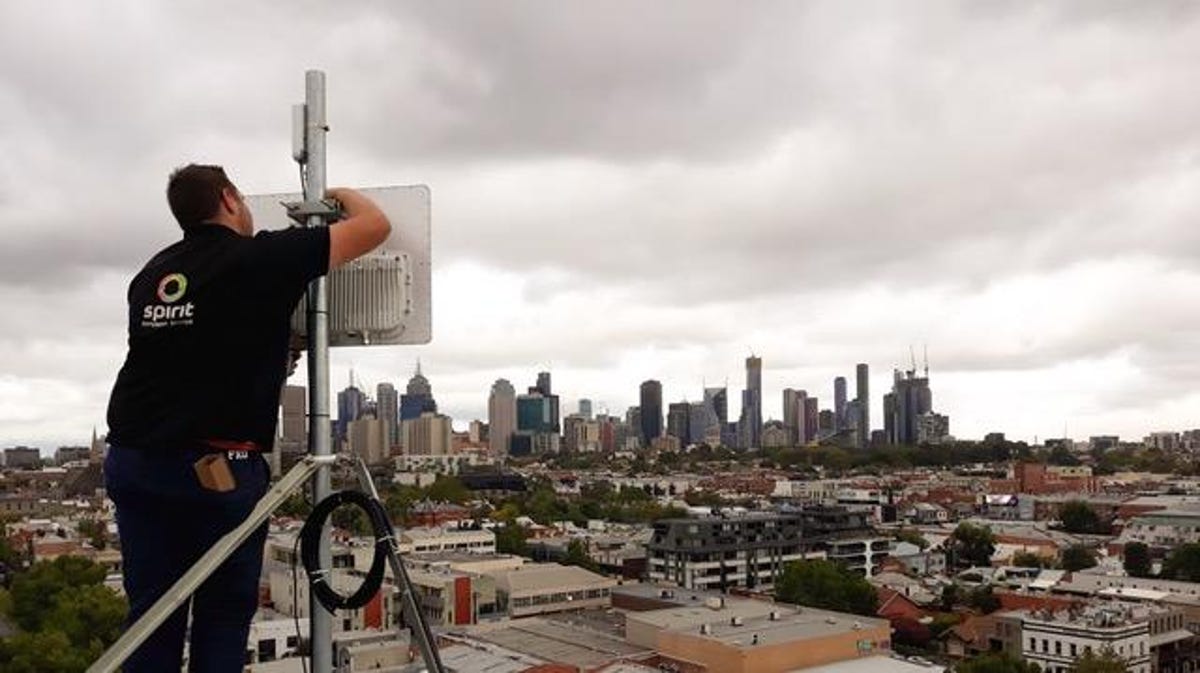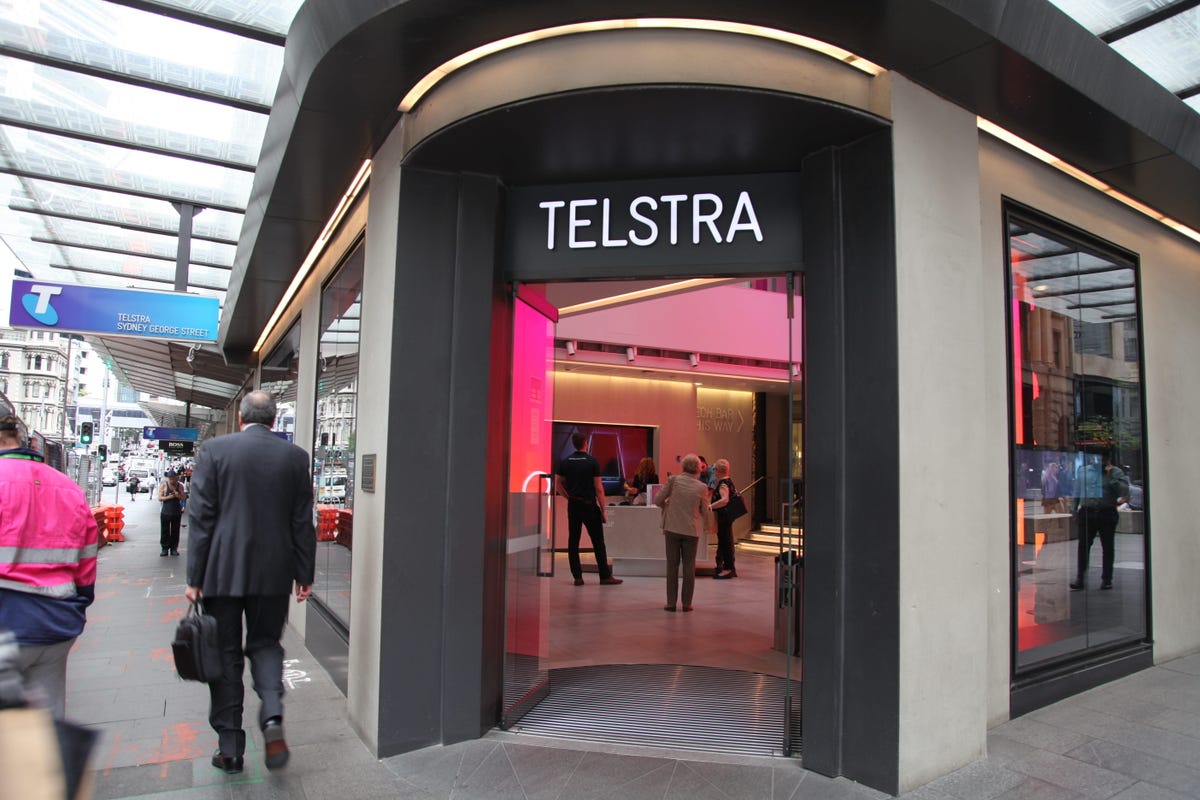When it comes to broadband connectivity, Australian small businesses with around 10 or fewer users are stuck in a product gap. There’s a good chance your premises’ NBN connection cannot deliver the speed your business really needs, but getting something faster can quickly get more expensive.
Speed isn’t the only consideration for a business-grade internet connection, of course. You need reliability because downtime means not just annoyance but also lost revenue, and you need prompt support when things go wrong.
You might also need dedicated IP addresses so you can set up a permanent high-speed connection to a branch office or a VPN gateway for your staff to securely work from home — after all, hasn’t that become a thing during the pandemic?
You might even want to look at getting a broadband package with a proper service level agreement (SLA), where the vendor commits to standards of speed and reliability where there are penalties if they don’t deliver.
For example, vendors supplying NBN connections can offer enhanced SLA options. Instead of the standard business hours fault reporting with rectification by 5pm the next business day, you can pay for fault reporting 24/7 with rectification in as little as four hours.
Remember, consumer-grade broadband is provided as “best effort”, but in business, sorry isn’t good enough.
Here, then, are some business-grade broadband options for SMEs.
We haven’t listed every single option because there are a plethora of smaller NBN resellers with broadly similar offerings.
Nor have we listed every option from the vendors we chose. Here are just some highlights that are featured in their offerings. If you see an add-on you like with one vendor’s product, ask others if they can provide it too.
This is intended as a guide for shopping around — especially if you’re thinking about adding phone services or data service add-ons, such as email, security, or backups.
Let’s face it, it’s all about the NBN or avoiding it
For better or worse, the majesty of the national broadband network means that almost every premises in Australia has access to a broadband connection that delivers roughly the same basic performance options regardless of retail vendor.
The problem is, however, some premises are more basic than others.
What’s potentially on offer at any particular location will be a subset of what NBN calls Traffic Class 4 (TC4). The available speeds will be limited by the connection technology that’s in place. What each vendor then offers to sell will be some subset of that.
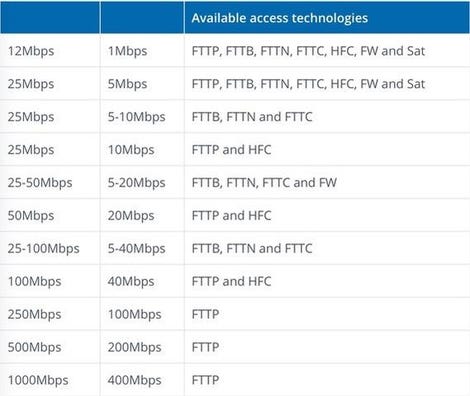
The range of wholesale NBN options available for each connection technology, from fibre to the premises (FttP) to fixed wireless (FW) and satellite (Sat).
Image: NBN
Typically, a retail vendor will offer a plan at 50Mbps download and 20Mbps upload speeds (50/20), and one at 100/20. A post-installation line test will confirm the actual speeds that can be delivered.
Getting anything faster on the NBN relies on the luck of having better technology provided at your location, such as fibre to the premises, or at least to the basement, or HFC. In the case of FttP, speeds up to 1000/400 might be available, depending on the vendor.
This is why every vendor will ask for your address before even thinking about offering higher speeds.
If your business needs more than what your luck-of-the-draw NBN can provide, you have two choices.
Under the NBN Technology Choice Program, you can pay to upgrade your location to full fibre. As the company warns, however, “costs can vary greatly” and that could easily run into the thousands of dollars, especially outside inner city locations.
That said, under the NBN Business Fibre Initiative, “an estimated 90% of business locations within the NBN network footprint” are now eligible for a connection to the company’s Enterprise Ethernet plan with no upfront connection cost to your provider if you sign a 36-month contract.
Or you can look at what the vendors themselves can provide using their own non-NBN connectivity options. Once again it’s all about where you are and what gear they already have in your area.
Either way, if your business is located in premises you rent or lease, you’ll also need to check with the owner to confirm that you’re allowed to do any work required as part of the installation.
The need for speed, and especially symmetry
“High-quality symmetrical upload and download speeds are vital for consistent business-grade day-to-day functions such as video conferencing or utilising cloud-hosted platforms and services,” says NBN on its website.
Which is to say, even NBN says that NBN’s generic business broadband options are not completely suitable for business.
If your business generates large data files rather than just downloading them from others, good upload speeds are vital. Think graphics, videos, or large scientific data sets.
You’ll also need good upload speeds if you’re participating in video conferences rather than merely watching someone else’s video stream.
Each platform will list its recommended link speeds for effective use.
Remember that three employees joining the conference from their own desks counts as three streams, not one.
In these cases, the broadband plan’s upload speed is the one you should really be concerned about, not the download speed.
Currently the fastest NBN, plus bonus entertainment packages
Optus offers the two standard NBN speed choices, 50/20 and 100/20, starting at AU$75 and AU$95 per month, respectively. If you have an eligible FttP or HFC service then there’s also the so-called Superfast with a “typical busy period” speed of 215Mbps down and 18.5Mbps up for an extra AU$35 per month, and the “Ultrafast” at 250Mbps down and 37.5Mbps up for an extra AU$55.
All plans include unlimited data and automatic fail-over to the Optus LTE/4G network in the event of a failure, with the switch happening in one to six minutes.
They also include the Optus-branded Wi-Fi modem, but you’ll need to stay connected for 36 months otherwise you will be charged for it.
Your main upsell options are the “Ultimate” pack with a Wi-Fi booster to extend the range through your premises, and a security add-on to monitor Wi-Fi connections for threats; or the “Entertainer” pack with a Fetch TV set-top box and one premium channel pack. Or you can pay for both.
All plans also include the Optus Sport and OS Fitness video streaming channels, with Premier League and UEFA Champions League matches live, plus the UEFA Nations League, UEFA Europa League, and European Qualifiers.
Optus can boast that it’s currently rated number one for NBN average download speeds by the Australian Competition and Consumer Commission, although of course, that may not last forever.
If you want symmetrical speeds, though, you’ll be needing something from their Optus Evolve suite of products. Given that they’re targeting “corporate offices”, that’s probably not for your small business.
If you’re in Adelaide, you’re really in luck
TPG’s business plans start with a somewhat minimalistic NBN12 product, with 12Mbps download speed and a mere 1Mbps upload for AU$70 a month. That’s not enough for even one stream of reliable video conferencing, and it’s truly glacial if you have data to upload. But it might handle one or two workers with some point-of-sale transactions or other lightweight cloud services.
The usual 50/20 and 100/20 products start at AU$80 and AU$100 a month, respectively. At that price there’s a 500GB per month data cap (250GB peak and 250GB off-peak), though it includes unlimited local and standard national calls. Add AU$10 per month for unlimited data, and another AU$10 per month for unlimited calls to mobiles.
All of TPG’s NBN plans have a AU$100 set-up fee unless you sign an 18-month contract. There’s no charge for moving up or down speed. All business plans come with a static IP address.
TPG also offers unlimited symmetrical fibre connections to “TPG lit buildings (excludes data centres)” at 400Mbps for an advertised AU$400 per month (plus GST so it’s actually AU$440 per month), and 1Gbps for an advertised AU$800 per month (actually AU$880).
The bandwidth can be split among up to four services, so customers can allocate dedicated bandwidth to voice, or to links to branch offices, or specific cloud services.
There’s a 99.95% availability SLA, backed by outage restoration targets and rebates. Contract terms are 24 months and up.
If you’re in Adelaide, and specifically the CBD or North Adelaide, TPG has unlimited 1Gbps fibre for AU$400 per month (really AU$440) as part of the Ten Gigabit Adelaide network.
An all-Australian operation with an army of happy customers
Competitors envy Aussie Broadband’s customer satisfaction ratings. Customers like its all-Australia support and clarity of communications.
Business NBN packages are sold as a simple-to-understand selection from the options NBN gives Aussie. They start at AU$80 per month for 50/20 speeds, ranging up to AU$430 per month for 1000/400, all with unlimited data. Optionally, upgrade to priority or even 100% guaranteed bandwidth, or add on NBN’s enhanced SLA.
Aussie also offers its own Fast Aussie Fibre product, providing symmetrical speeds and a 1:1 contention ratio. Speeds start at 250/250 for AU$300 per month (plus GST so it’s really AU$330), through to 1000/1000 for AU$800 (really AU$880), then through 2Gbps and 5Gbps options, all the way up to 10Gbps symmetric for AU$5,000 per month (really AU$5,500).
Fast Aussie Fibre comes with a 99.95% uptime SLA, and zero set-up fee if you sign for 36 months, although 12 and 24 month contracts are available.
An independent fixed wireless network provides another choice
The rapidly-growing company formerly known as Spirit Telecom has transformed into an integrated IT and telco business. For some businesses, the ability to bundle internet, internal networks, voice, security, support, and applications into a single supported package could be a key advantage.
Spirits offers the usual NBN TC4 and non-NBN symmetrical fibre products, from AU$130 and AU$420 per month, respectively, with the potential to use “all possible options out there in the market”.
Another key difference is their Sky-Speed Internet, Spirit’s own fixed wireless network along Australia’s east coast. Starting at AU$300 per month and offering speeds of 25/25 up to 1000/1000, this might be a good option for high-speed broadband in regional areas.
All business customers are supported by the company’s Australian support team, assisted by the network operations centre in Makati in the Philippines.
Spirit says its core target market is customers with between 50 and 500 users, but for businesses with demanding data requirements they might be worth a look.
Australia’s original telco is wherever you are
It must be said: No matter what connectivity technology you want, or what add-ons you’re after, Telstra will be able to sell it to you. To describe Australia’s biggest telco’s product range as comprehensive is an understatement.
That means it’s complex, and you’ll soon discover subtleties. One example is that the “Business NBN plans” sold to small businesses are slightly different from the “Business Broadband plans on the NBN network” sold to business and enterprise customers.
If faster asymmetric NBN speeds are available at your location, prices range up to AU$450 per month for 1000/400.
Symmetrical fibre links are available in the Telstra Internet Direct (NBN Enterprise Ethernet) and Telstra Internet Direct Lite (Telstra fibre) products, with a wide range of quality of service options. You’ll have to get a quote for your location.
Telstra also offers a vast range of small business apps, including Microsoft 365, MYOB Essentials accounting, cybersecurity, digital marketing support, and even 24/7 general tech support.
Getting the speed you paid for
The overall performance of any data network depends on its weakest link. Once you start looking at broadband internet connection speeds in the hundreds of megabits per second or more, the weakest link may well be something else.
For the very best results, use a wired connection for every device on your office network. Make sure all your ethernet switches have ports rated for 1Gbps. Use quality Cat 6 ethernet cables and make sure to test every one of them. Dodgy connectors or kinks in the cable can dramatically reduce the data speed.
If you prefer wireless, make sure all your wireless routers, access points, and extenders are correctly configured, and located where they’re getting as direct a signal as possible.
Perhaps even use a Wi-Fi network mapping tool to make sure you’re not trying to use the same channel as other nearby networks, including those on the other side of a shared wall, or on the floor above or below. Some routers can automatically switch to vacant channels, some can’t.
What counts as a business?
Generally, business broadband plans are available to anyone with an Australian Business Number, or a company or other organisation with an Australian Company Number. This includes sole traders, even if they work from home.
A vendor’s non-NBN options will usually have restrictions, however. Non-NBN business connections may only be available to commercial buildings, not apartment buildings or individual homes, for example.
Shop around but don’t penny-pinch
All prices in this guide are those listed by the vendors on their websites at the time of publication, excluding any time-limited special offers.
NBN is currently discounting its pricing to vendors, for example, with a cheaper price for the first six months of a new NBN connection, and those discounts are being passed on by vendors to a greater or lesser degree.
Always shop around, and always consider the price of broadband as just one component of your overall IT spend. It may well be that a broadband package costing a few dollars more includes extras that a cheaper vendor would be charging a lot extra for.
If you’ll be using the NBN for your phone service as well, check how that can be packaged with data connectivity. Make sure to check the call rates too, especially if you make a lot of international calls or calls to mobiles.
10 bucks extra per month to move from capped data to unlimited, or to jump up a whole speed range, should be a no-brainer.
If a long-term contract is required, be sure to find out whether you can change the plan, how often, and whether a fee is involved. Make a note of when the contract is due to end, and know what the subsequent monthly charge will be, should you decide to continue on a month-to-month basis.
We recommend getting a detailed quote that includes all one-time charges as well as a firm estimate of monthly charges, including taxes and fees.


